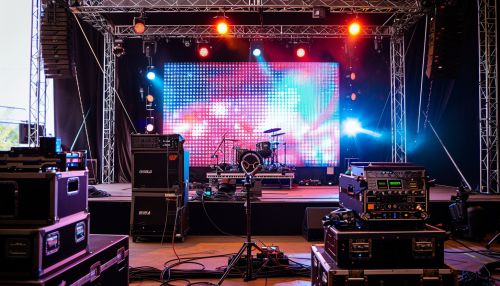Eurovision Song Contest Voting System
Overview
The Eurovision Song Contest is a yearly competition organized by the European Broadcasting Union (EBU) where member countries submit original songs to be performed on live television and radio. The voting system of the Eurovision Song Contest is a critical element of the competition, and it has evolved significantly since the contest's inception in 1956.


History
The Eurovision Song Contest was initially a radio program, and the voting system was designed to reflect this medium. The first voting system was a simple majority vote, where each participating country had a jury of ten members, each member could give one point to their favorite song. The song with the most points at the end of the voting process was declared the winner. This system was in place from 1956 to 1961.
In 1962, the EBU introduced a new voting system to add more suspense to the contest. Each country's jury was still composed of ten members, but now each member could give one to five points to their favorite songs. This allowed for a greater range of scores and increased the potential for dramatic comebacks.
The voting system has continued to evolve over the years, with significant changes implemented in 1971, 1975, 1997, and 2016. These changes have been made to keep the contest exciting and unpredictable, and to ensure that the voting process is fair and transparent.
Current Voting System
The current voting system was introduced in 2016 and is a combination of jury voting and televoting. Each participating country has a national jury that awards points to the songs, and the public in each country also votes via telephone, SMS, or the official Eurovision app.
Jury Voting
Each national jury is composed of five music industry professionals who are citizens of that country. The jury members are required to be impartial and not have any connection to the participating songs or artists. The jury watches the second dress rehearsal of each show (the jury final) and ranks all the songs, excluding their own country's entry.
The jury's ranking is converted into points using the "Eurovision" system: the top song receives 12 points, the second-best song gets 10 points, and the songs ranked 3rd to 10th receive points from 8 to 1, respectively. The songs ranked 11th and below do not receive any points from the jury.
Televoting
In addition to the jury voting, the public in each participating country can vote for their favorite songs. The public can vote by telephone, SMS, or through the official Eurovision app. The voting window opens after the last song has been performed, and closes 15 minutes later.
The televoting results are also converted into points using the "Eurovision" system. However, if a country's televoting results are insufficient or unavailable, then the results of a backup jury are used.
Combined Results
The points from the jury voting and the televoting are combined to determine the country's overall score. The song with the highest overall score at the end of the voting process is declared the winner. In the event of a tie, the song that received points from the most countries is the winner. If there is still a tie, the song that received the most 12-point scores is the winner.
Criticisms and Controversies
The Eurovision Song Contest voting system has been the subject of criticism and controversy over the years. Some critics argue that the system is too complex and confusing for viewers. Others claim that the jury voting is susceptible to bias and manipulation, and that the televoting results are influenced by diaspora voting and political alliances between countries.
Despite these criticisms, the EBU maintains that the current voting system is the fairest and most transparent method of determining the winner of the Eurovision Song Contest. The EBU also regularly reviews and adjusts the voting system to address any issues and improve the contest.
